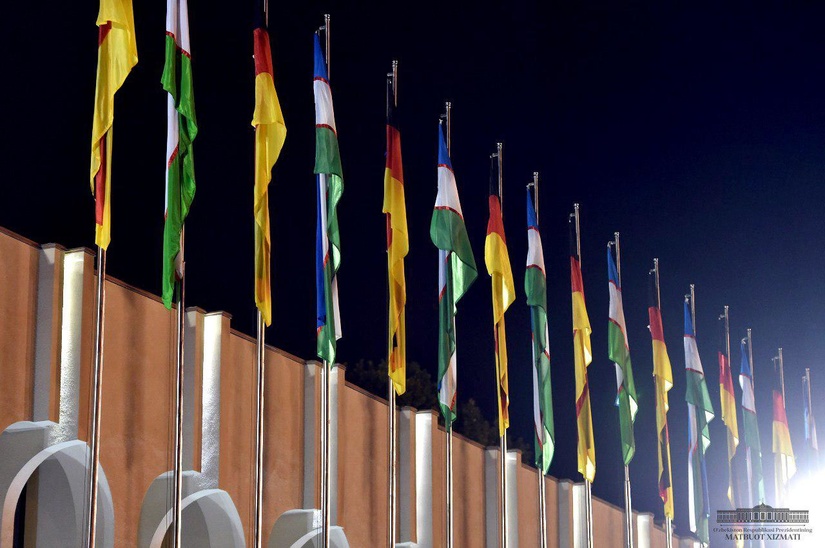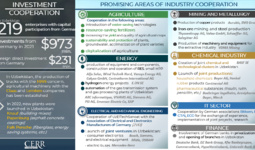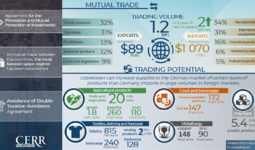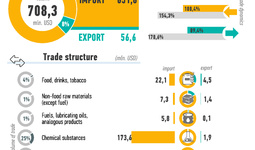The purpose of the conference was to discuss the current state and prospects of Uzbek-German cooperation in trade, economy, investment, cultural and humanitarian spheres, including in the post-pandemic period.
The event was organized by the Institute of Strategic and Interregional Studies in cooperation with the representative office of the Konrad Adenauer Foundation in Uzbekistan.
The heads of diplomatic missions in Tashkent and Berlin, leading experts from research and analytical structures, as well as representatives of official members attended in the conference.
Deputy Director of CERR, U. Abidkhadjaev emphasized that among the countries of the European Union, Germany is the main trade and economic partner of Uzbekistan.
In general, over the past three years, there has been a positive dynamics of growth in trade turnover between Uzbekistan and Germany. So, from 2016 to 2019, trade circulation between two countries increased by 87% from 529.1 to 989.8 million dollars. At the same time, exports increased by 69%, and imports by 88.4%.
In 2020, due to the coronavirus pandemic, trade slightly decreased by 16.2% to $ 829.0 million. At the same time, exports increased by 13.3% from 62.2 to 70.5 million dollars, while imports decreased by 18.2% from 927.5 to 758.5 million dollars.
Having considered the imbalance situation in mutual trade, U. Abidkhadjayev pointed that the earliest possible receipt of the GSP + status by Uzbekistan will increase exports to the EU countries, including Germany, which will also contribute to reducing the imbalance.
In 2020, within the framework of the implementation of about 110 investment projects, the volume of utilized German investments increased by 25% and exceeded $ 710 million.
The Federal Ministry for Economic Cooperation and Development of Germany has developed a new "Strategy 2030", which shortens the list of partner countries for bilateral cooperation. At the same time, only Uzbekistan was included in the short list from the Central Asian countries, which makes it possible to continue bilateral cooperation on the implementation of joint projects.
In particular, the Deputy Director of CERR highlighted the cooperation with Germany to create production facilities for the finished products for export to the countries including to the markets of South Asia, especially Afghanistan.
In conclusion, he noted that trade, economic and investment cooperation between Uzbekistan and Germany has great prospects and it is necessary to continue to find and develop new forms and directions of economic cooperation.
Let us remind you that in February 2020, The government delegation of Uzbekistan with Deputy Director of the CERR U. Abidkhodjaev, visited Berlin. At the conference prospects of Uzbek-German cooperation, as well as issues of regional security, cooperation with regional and global trade and economic structures were discussed
In addition, in April 2020 CERR organized a webinar with the assistance of the IFO Institute and the Berlin Economics consulting company to study the German experience to develop the Business Climate Index (Geschäftsklimaindex).
Detailed information was obtained on the development of the Index using IFO formulas for the aggregation of indicators. Since May 2020, CERR has been conducting a monthly survey of more than 1000 enterprises to assess the business climate in Uzbekistan, which was created using the same IFO methodology.
CERR continues further cooperation with the Berlin Economic Group. In particular, this year it is planned to consider the methodology for forecasting GDP and compare their advantages and disadvantages, as well as develop an optimal methodology for forecasting short-term and long-term GDP from the supply side and apply this methodology in practice.
Public Relations Service CERR





















leave a comment